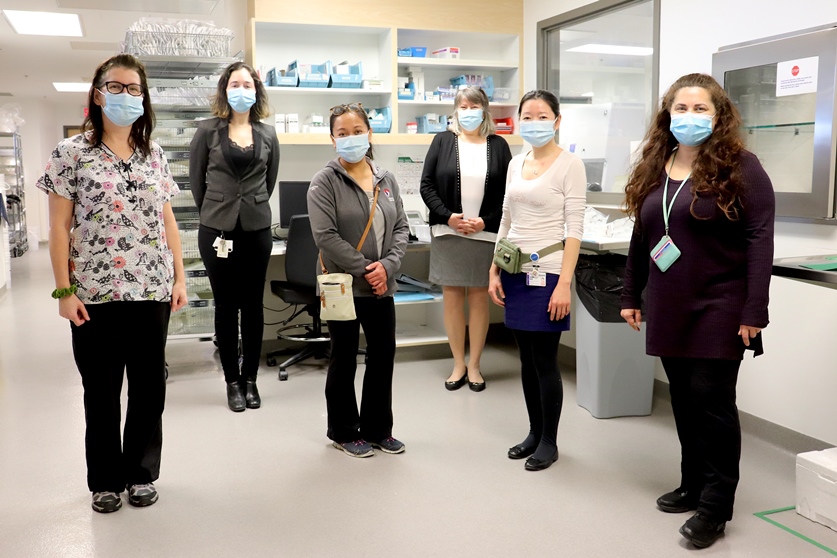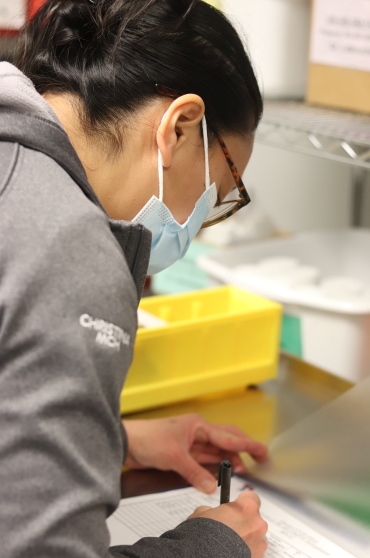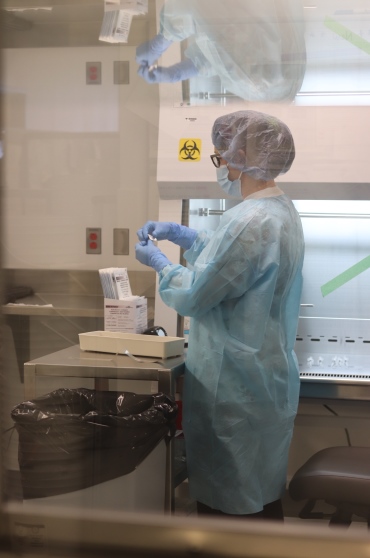MUHC Pharmacy: the right chemistry for success in the face of COVID-19

When André Bonnici heard that Pfizer was developing a COVID-19 vaccine requiring storage in temperatures of -70 to -80 degrees Celsius, he had a feeling he should equip the pharmacy with ultra-cold freezers.
“Even though it was not confirmed that we would be receiving the Pfizer vaccine, I proposed that we buy the freezers to store the vaccine, just in case,” says the director of Pharmacy at the McGill University Health Centre (MUHC). It was a gamble, but a winning one since the MUHC received its first shipment of the vaccine with a few days’ notice.
Before the vaccine even existed, like all teams across the hospital, the pharmacy had to demonstrate agility in the face of the pandemic. More than dealing with the new challenges, the chief pharmacists of Montreal hospitals had the reflex to think ahead. “We decided to get a province-wide committee going so that we could stock pharmacies across Quebec with the right amounts of medications we predicted COVID-19 would require,” says André. In preparation for the eventuality of increased intensive care needs, André made sure the MUHC had sufficient medication for all ICU patients.
The pandemic created a surge of research into the virus at the MUHC, requiring a collaboration unlike ever before between the pharmacy the Research Institute of the MUHC teams. Pharmacy was essential in the creation and alteration of protocols for drugs being tested for the treatment of COVID-19, like Remdesivir, Dexamethasone and Colchicine. “We now have a pharmacist coordinating research studies because of the acceleration of research projects brought on by COVID-19,” says André. “A strong partnership developed between pharmacists and researchers, and that is a positive outcome of the pandemic,” he adds.


The arrival of the COVID-19 vaccine meant more changes for the MUHC Pharmacy, whose role in the administration of doses is essential. The vaccine is removed from the ultra-cold freezer using protective gear, placed in a refrigerator to thaw, then diluted. “Once the vaccine is diluted, it is good for six hours only,” explains Céline Dupont, associate-chief pharmacist at the MUHC. These six hours are crucial and require precision. “We need to ensure clear communication with the clinic so that we prepare the exact number vaccines: there absolutely cannot be any waste,” she adds.
Each vial is carefully handled by teams of two pharmacy technicians. One technician hands the vials to the other technician who works in a sterile environment and is responsible for diluting and carefully mixing the contents of each vial. The vials are sealed and handed back to the first technician, who diligently notes the expiration date and hour on each one. Once the vials are ready to be administered, the technician, accompanied by a security guard, takes them to the vaccination clinic.
The arrival of the vaccine was another challenge added to many others the pharmacy team had to face since the beginning of the pandemic. “We have had to adapt to a new way of working in the pharmacy, but we’re a resilient team,” says Céline.

